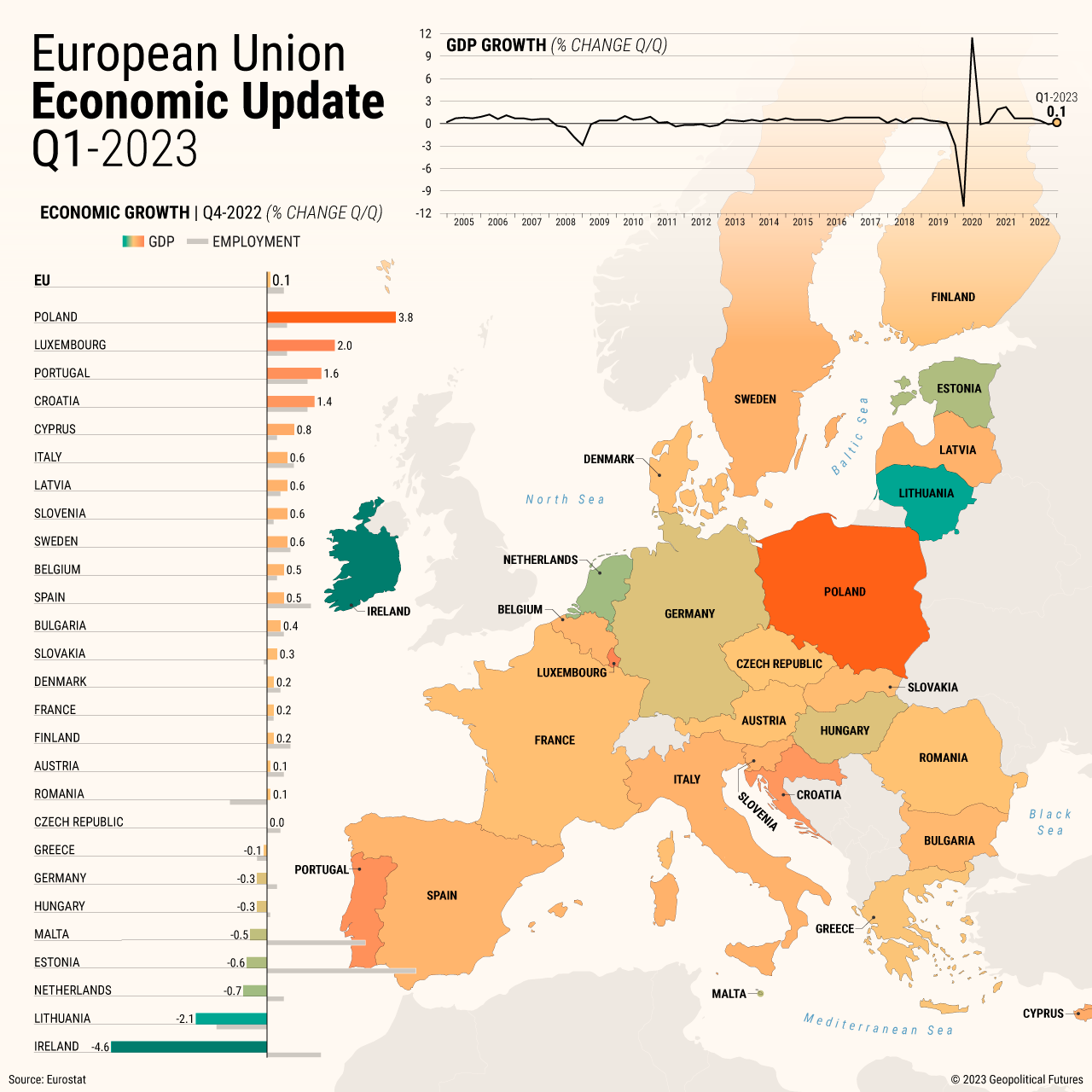The European Union as a whole achieved slight economic growth in the first quarter of the year, but weaknesses abound. Germany, the bloc’s largest economy, officially slipped into a technical recession. Employment in the country has held its ground, but if the slowdown persists it could reverberate through German supply chains that weave their way throughout Europe.
On the other hand, Poland recorded 3.8 percent growth compared with final quarter of 2022, powered by household consumption and exports. Since the start of the war in Ukraine, Poland has become a bridge to its eastern neighbor for weapons and ammunition, petroleum products and more.
The war and uncertainty about prices remain the major obstacles to European growth. On the other hand, employment is still rising and energy prices have returned to Earth.





